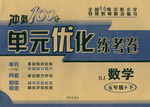题目内容
【题目】—The film is, I have to say, not a bit interesting.
—Why? It's __________ than the films I have ever seen.
A. far more interesting B. much less interesting
C. no more interesting D. any less interesting
【答案】A
【解析】句意:——我不得不说这部电影一点都没有趣。——为什么?它比我以前看过的所有电影都有趣。本题考查形容词的比较等级。根据第二句中Why?可以看出第二个人与第一个人的态度相反,也就是说他对这部电影持肯定态度,选项中的其他三项都是否定意义,故答案为A项。

练习册系列答案
 冲刺100分单元优化练考卷系列答案
冲刺100分单元优化练考卷系列答案
相关题目